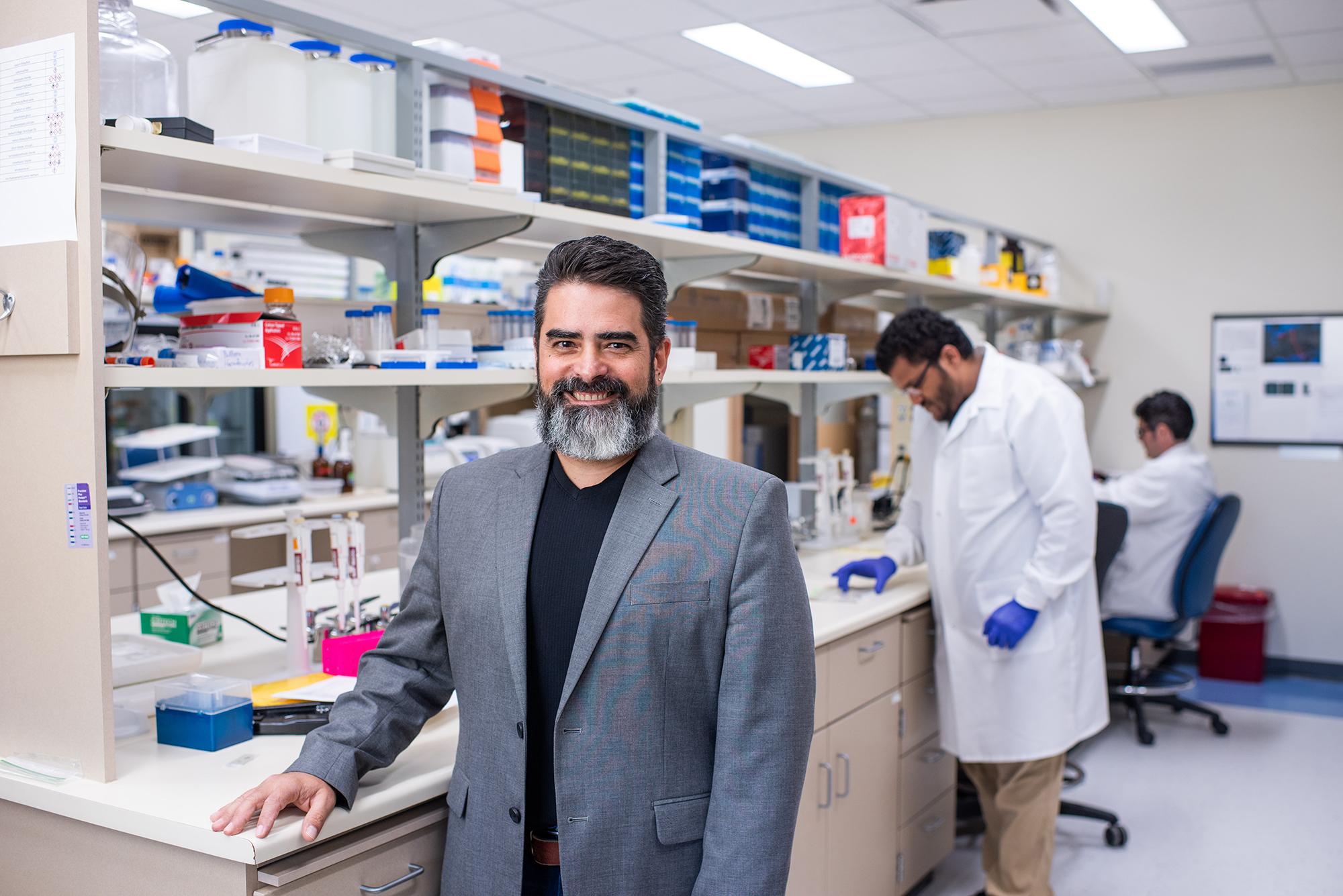
Sergio Gradilone, PhD
Professor
The “Cancer Cell Biology and Translational Research” section focuses on understanding the basic biological processes involved with a normal cell transforming into a cancerous one. By understanding these mechanisms, potential therapeutic interventions may be envisioned. We continue investigating the role of the primary cilium in tumor biology.
Primary cilia are multisensory organelles – similar to a cell antenna – that sense and receive signals from the environment surrounding the cells. We’ve found that these antennae are lost in tumor cells; therefore, we are trying to understand the mechanisms of ciliary loss, and what are the consequences of such a loss. Furthermore, as we gain knowledge on these mechanisms, we are now able to induce the restoration of primary cilia in tumor cells and bring back the malignant cells to a more normal phenotype, which may contribute to the development of new therapeutic strategies based on the rescue of primary cilia integrity.
Our research is focused on “cholangiocarcinoma”, an aggressive and lethal form of liver cancer that derives from the epithelial cells of the bile ducts. But the loss of primary cilia also has been described in other solid tumors, including pancreatic, prostate, breast and kidney cancers, broadening the spectrum of potential applications of this research. Therefore, during the last year we have expanded our program to breast and pancreatic cancers.
We continue our collaborations and established new ones, both intra- and extramural, with prestigious investigators and institutions including: Drs. Saleem Bath, Daqing Yang, Ted Hinchcliffe, James Robinson, and Yibin Deng (The Hormel Institute), Drs. Nicholas LaRusso, Lewis Roberts, and Steven Alberts (Mayo Clinic Rochester, MN), Dr. Kabir Mody (Mayo Clinic Jacksonville, FL), Dr. Jesus Banales (Biodonostia Research Institute -Donostia University Hospital, San Sebastian, Spain), Dr. Raul Marinelli (National University of Rosario, Argentina), Dr. Hector Perez (Ability Pharmaceuticals, Barcelona, Spain), Regenacy Pharmaceuticals Inc (Boston, MA), and KARUS Therapeutics (UK).
Our laboratory first federal grant started in July 2015. This research grant from the National Cancer Institute (National Institutes of Health) R01 CA183764 entitled “The Cholangiocyte Primary Cilium as a Tumor Suppressor Organelle” supports our main line of research focused on bile duct cancer at The Hormel Institute for five years. Furthermore, during the last year we were honored with three new pilot grants: (i) Mayo Clinic-Jacksonville to explore the role of HDAC6 in pancreatic cancer, and (ii) The Randy Shaver Cancer Research and Community Fund, and (iii) The “Paint the Town Pink” Award to study the new concept of ciliophagy in bile duct and breast cancer, respectively.
Our research has been published in several manuscripts and international meetings, and is uncovering novel and generalizable information on fundamental, ciliary-dependent mechanisms controlling the proliferation of malignant cells and provide the foundation for plausible, novel anti-cancer therapies based on the restoration of primary cilia architecture and function. By partnering with collaborators directly engaged in the treatment of patients and with pharmaceutical industries, our ultimate goal is to translate our basic research to the bedside by developing new clinical trials for these diseases.
